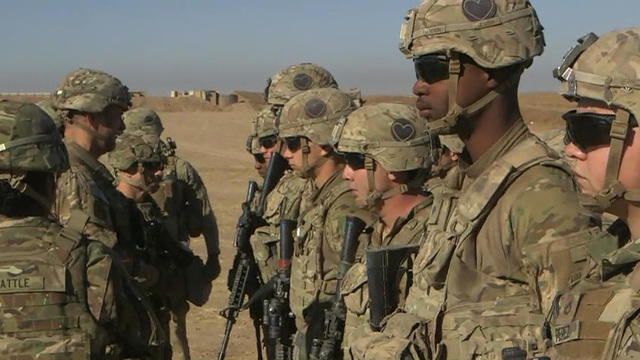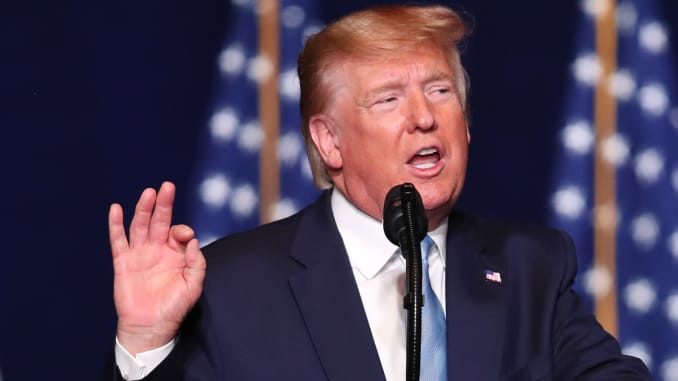 U.S. President, Donald Trump, has threatened Iraq with severe sanctions after its parliament called on US troops to leave the country.
U.S. President, Donald Trump, has threatened Iraq with severe sanctions after its parliament called on US troops to leave the country.
Speaking from the presidential plane, Mr Trump said that if Iraq asked US forces to depart on an unfriendly basis,they would be charged with sanctions like they had never seen before.
About 5,000 US soldiers are in Iraq as part of the international coalition against the Islamic State group.
On Sunday, the coalition paused its operations against IS in Iraq, and Iraqi MPs passed a non-binding resolution calling for foreign troops to leave.
The resolution was pushed through by the parliament’s Shia Muslim bloc, which is close to Iran.
And Iran has announced it will no longer abide by restrictions imposed by the 2015 nuclear deal, under which it agreed to limit its sensitive nuclear activities and allow in international inspectors in return for the lifting of economic sanctions.
In a statement, it said it would no longer observe limitations on its capacity for enrichment, the level of enrichment, the stock of enriched material, or research and development.
The leaders of Germany, France and the UK – which were all signatories to the 2015 deal, alongside China and Russia have responded with a joint statement urging Iran to refrain from “further violent action or proliferation”.




